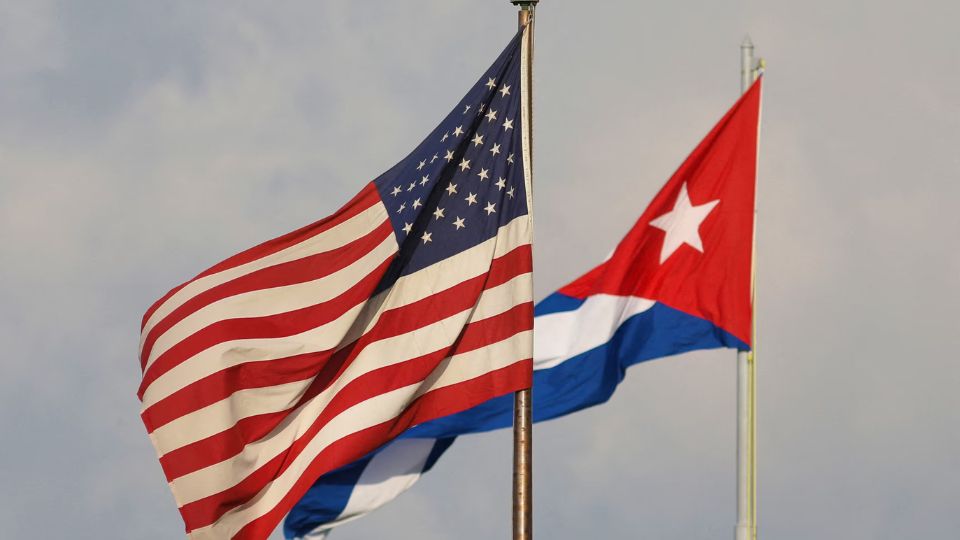The U.S. Treasury Department has made regulatory changes to make it easier for American financial support to reach Cuba’s growing private sector. These changes will also improve access to U.S. internet-based services for the country. These measures are limited but timely, and officials believe they will benefit Cuba’s small businesses.
The United States has announced that it will now allow small business owners in Cuba to open and use U.S. bank accounts. This is the first time in many years that this has been permitted, as restrictions were put in place shortly after Fidel Castro’s revolution in 1959.
The new measures will enable Cuban entrepreneurs to access and use social media platforms, online payment sites, video conferencing, and authentication services based in the United States. These services were not available to the sector before and were a significant obstacle for small businesses in Cuba.
The Biden administration is taking steps to support Cuba’s emerging entrepreneurs, despite the long-standing U.S. embargo that has made financial transactions difficult for the Cuban government. These moves are in line with the administration’s commitment to assist Cuba’s small but rapidly expanding private sector.
“Today, we are taking a significant action to help the growth of free enterprise and the entrepreneurial business sector in Cuba,” a senior U.S. official informed reporters on Tuesday.
Also Read: US Development Finance Agency to Open PH Office
The Cuban government has not yet replied to a request for comment regarding the policy changes.
U.S. officials, who spoke to reporters without revealing their names, indicated that they tried to find a balance between supporting the private sector and not benefiting the Cuban authorities when creating these measures.
President Joe Biden became the President in January 2021. Many people in Cuba were hopeful that he would change the strict policies that were put in place by the previous President, Donald Trump. However, when Cuba cracked down on protests during the summer of that year, the Biden administration decided to continue putting pressure on Havana.
The new measures would not apply to Cuban officials, military officers, and other government “insiders.” The goal is to reduce the resources that the Cuban government can access through these benefits.
Republican U.S. Representative Maria Elvira Salazar, who is a Cuban American lawmaker from South Florida, promptly expressed her disapproval of the Democratic administration’s announcement.
“The Biden Administration is now allowing the ‘Cuban private sector’ to use the U.S. financial system,” she mentioned in a post on X. “This would make a joke out of American law, because no progress has been made towards freedom on the Island and repression has gotten worse.”
Cuba has been facing economic crisis for many years, and it has often blamed the embargo imposed by the United States. This embargo consists of a complex set of laws and regulations that make it difficult for the Cuban government to carry out financial transactions. As a result, Cuba has had to open up its economy to small private businesses as a way to cope with these challenges.
Businesses that were previously considered taboo in Communist-run Cuba are now thriving on the island.
The Cuban government has implemented new laws in 2021 that have resulted in the creation of over 11,000 small businesses as of May. These businesses include corner grocers, plumbing, transportation, and construction services.
According to statistics from the economy ministry in late 2023, those businesses employ more than 15% of Cuban workers and contribute to around 14% of the country’s gross domestic product.
The regulations announced on Tuesday now allow U.S. banks to process “U-Turn” fund transfers for Cuban nationals. This means they can move money for Cuban individuals, including payments and remittances, as long as the senders and recipients are not subject to U.S. law.
John Kavulich, president of the U.S.-Cuba Trade and Economic Council, said that these measures are a positive move. However, he pointed out a problem with the policy: Cuban businesses still have to use banks in other countries to transfer their money, which puts them at a disadvantage.
“The Biden-Harris Administration will be limiting the very activity it claims to support as long as financing, investment, and payments have to go through third countries,” Kavulich said in an email.
Tuesday’s announcement does not indicate that there will be a major reduction in U.S. sanctions and restrictions on Cuba. So far, President Biden has only taken small steps in this regard since taking office.
Some experts believe that Biden is being careful when dealing with Cuba because he is worried that a more lenient approach towards Havana could harm his political standing among Cuban American voters in Florida. Florida is an important swing state that Biden lost to Trump in the 2020 election.


Leave a Reply